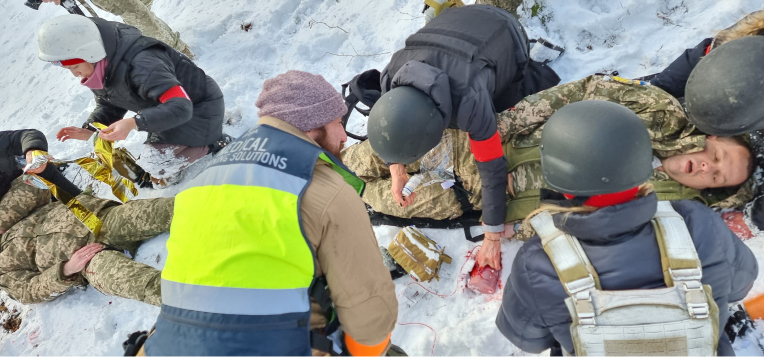
About the training
SAHCO Consulting has developed unique expertise in the design of Pre-Departure Training (PAD), designed over 3 days of field simulation for up to 20 people. Pre-Departure Training (PDT) is specifically designed for field operators, often as part of mandatory pre-deployment training.
Methodology/trainers
SAHCO offers PAD training based on essential elements of adult pedagogy, in particular the active participation of learners and the use of a variety of pedagogical techniques to ensure maximum learning of information. SAHCO ensures that participants are anchored in a realistic operational environment. Sessions are dynamic and highly interactive, with an average of 30% classroom-based and 70% off-site, based on a concrete case study.
- Easy to visualize a humanitarian program through simulation and professional actors
- To fully grasp the dimensions and responsibilities of each position within the field team
- Practical cases and scenarios will be carried out by participants immediately on the first day, with the aim of applying the knowledge taught and confirming its acquisition
Main objectives
- Systematize and promote the dissemination of the organization's main internal tools, methods and procedures
- Acquire the basics of the procedures and tools used by the organization internationally
- Facilitate and shorten induction times for field staff
- Standardize field practices and contribute to project quality
What will you learn?
The aim of the PAD is to provide new volunteers with a common operational culture: knowledge of the institutional tools, methods, resources, procedures, postures and deadlines that they will have to respect once they have taken up their position. Sessions are often led by a technical or operational referent from the department most concerned by the chapter in question.
- Understand all stages of the project cycle implemented by the organization
- Learning specific tools and methods which must be respected in line with the organization's operations
- Solving operational problems
Boost your career
Follow theoretical and practical course modules enriched by current feedback from the field.Consultant testimonies
I had low expectations for this HEAT training with SAHCO Consulting. I think it's one of the most useful courses I've attended, and it covered more topics than I expected. In addition, I was expecting not to be able to get fully involved in the simulations, or to be too anxious. On the contrary, the instructors and actors made the training very realistic, and many of the simulations took me out of my comfort zone, but never to the point where I couldn't handle it.
Gulfidan
Program manager
SAHCO Consulting's trainings and instructors are very professional and relevant to our work as humanitarian workers; I liked the fact that the instructors did not have military experience, but were senior humanitarian staff with years of experience in complex humanitarian environments and crises; I felt that I was understood in terms of the mentality and challenges we face in the field.
Eleonora
Gbv/cp program manager
I had the opportunity to attend a HEAT session delivered by Sahco Consulting, with whom we work in West Africa. The training is really adapted to humanitarian actors thanks to an approach based on our principles. This HEAT is well-balanced in the intensity of the learning exercises, and realistic in the scenarios and simulations of incidents we may encounter in the field. The trainers are professional, technically and humanitarian experienced, pedagogical, and flexible on the content of the training, allowing us to focus on the aspects we need to work on. All this in an excellent atmosphere of open collaboration.
Romain
Regional security manager
Indeed, this training course was very rich from the outset, with its very special teaching methodology, a perfect blend of practice and very realistic simulations; hats off to the trainers who were simply excellent. This training remains indispensable for us humanitarians living and working in hostile zones with volatile security situations. This training is beneficial on a personal, professional and even community level.
Benoit
Human rights activist




